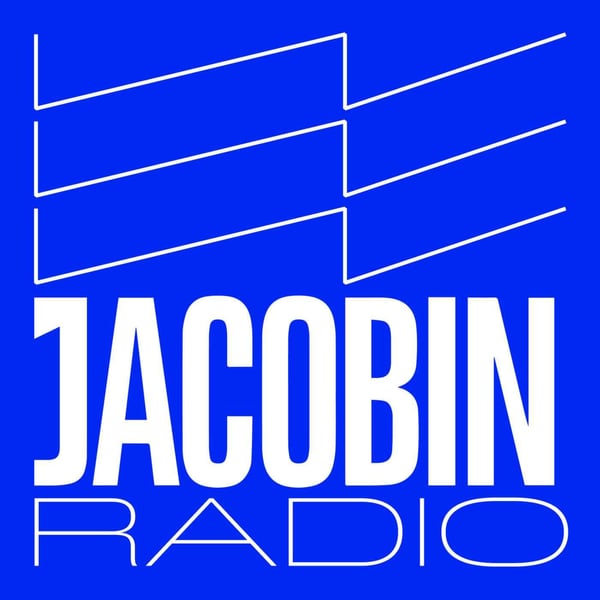Long Reads: John Foot on Italy's Two Republics From Anti-Fascism to Anti-Politics
Jacobin Radio
Jacobin
4.7 • 1.5K Ratings
🗓️ 12 February 2022
⏱️ 70 minutes
🧾️ Download transcript
Summary
John Foot joins Long Reads for a discussion about Italy from the era of partisan resistance to the current predicament of "post-democracy"—and a resurgent right wing. John is professor of modern Italian history at the University of Bristol. His works include The Man Who Closed the Asylums: Franco Basaglia and the Revolution in Mental Health Care and The Archipelago: Italy Since 1945.
Long Reads is a Jacobin podcast looking in-depth at political topics and thinkers, both contemporary and historical, with the magazine’s longform writers. Hosted by Features Editor Daniel Finn.
Read John's article "Closing the Asylums" here: https://jacobinmag.com/2018/05/asylum-franco-basaglia-psychiatry-mental-health
Produced by Conor Gillies, music by Knxwledge.
Hosted on Acast. See acast.com/privacy for more information.
Transcript
Click on a timestamp to play from that location
| 0:00.0 | Hello, you're very welcome to Longreads, a Jacquin podcast where we look in depth at political topics and thinkers. |
| 0:07.0 | My name is Daniel Finn, and the features editor here at Jacquin, and I'll be presenting the show. |
| 0:21.0 | We're listening to one of many versions of the Italian folk song, Bella Ciao, linked with the memory of the wartime resistance. |
| 0:27.0 | This 1964 recording was by the French actor Eve Montong. |
| 0:31.0 | His Italian parents had left their country to escape Mussolini's regime when he was a child. |
| 0:44.0 | The popularity of songs like Bella Ciao helped express and entrench the anti-fascist consensus in post-war Italy, |
| 0:50.0 | despite the bitter Cold War divide between Italian communism and Christian democracy. |
| 0:56.0 | In recent times, however, the government in Rome has included several politicians who have much more in common with Mussolini in his black shirts than with the Italian resistance. |
| 1:04.0 | If Silvio Berlusconi was the forerunner of politicians like Donald Trump, we can only guess which political figures will follow in the footsteps of the Italian far-right leaders Matteo Salvini or Georgia Meloni. |
| 1:16.0 | Our guest today for a discussion of post-war Italian politics is John Futt. |
| 1:20.0 | He's a professor of modern Italian history at the University of Bristol, an author of several books, including The Archipelago, Italy since 1945. |
| 1:31.0 | Many people on the Italian and international left, as well, came to look back at Italy's moment of liberation from 1943 onwards as a lost opportunity for revolution. |
| 1:41.0 | Do you think that was a realistic evaluation or was a case of wishful thinking? |
| 1:47.0 | I think the period 1943 to 5 with the resistance was very attractive and fascinating to the left in general. |
| 1:58.0 | And of course, many British people took part in it directly, partly in the liberation of that sort of official British army liberating Italy. |
| 2:11.0 | So there were a lot of people who then came back and, for example, then Italy, who became very prominent Labour Party politician was in the liberation of Italy. |
| 2:20.0 | But also a number of British radicals took part in the resistance itself in the Partisan War and think of someone like Stuart Hood, who was a novelist and later became actually a controller of the BBC, was a Partisan. |
| 2:35.0 | So there was a very close kind of connection between many people who were connected to that experience of a anti-fascist armed resistance and the liberation of Italy from the Nazis and the Italian fascism at the same time. |
| 2:54.0 | The idea of revolution coming out of that, I think there's a somewhat mythical element to that. |
| 3:00.0 | There were lots of people involved in the resistance who were revolutionaries, lots of communists, you could probably say the communists were the major sort of driving force. |
| 3:10.0 | But it was actually a very complicated and varied movement with Christian Democrats, liberals, monarchists and all kinds of people and quite a divided movement as well. |
| 3:23.0 | And many of those people simply wanted to restore democracy, some of them wanted a radical form of democracy, and some of them wanted a social revolution, and some of them wanted those things at the same time. |
... |
Please login to see the full transcript.
Disclaimer: The podcast and artwork embedded on this page are from Jacobin, and are the property of its owner and not affiliated with or endorsed by Tapesearch.
Generated transcripts are the property of Jacobin and are distributed freely under the Fair Use doctrine. Transcripts generated by Tapesearch are not guaranteed to be accurate.
Copyright © Tapesearch 2025.

